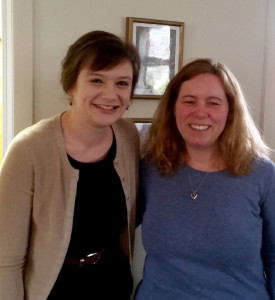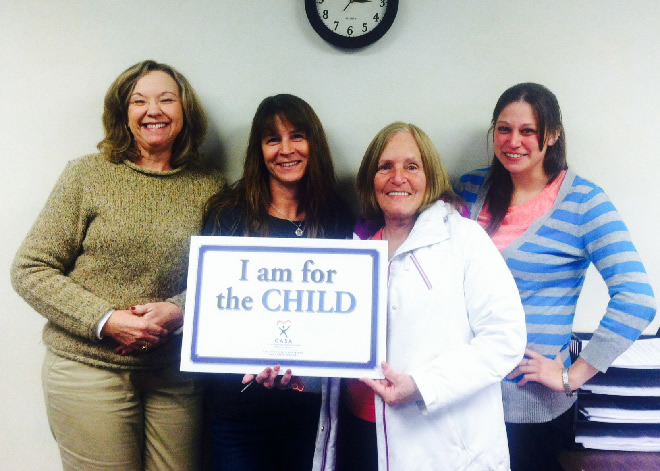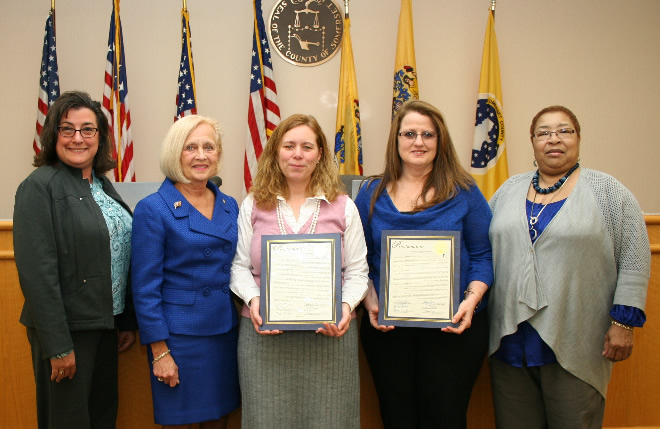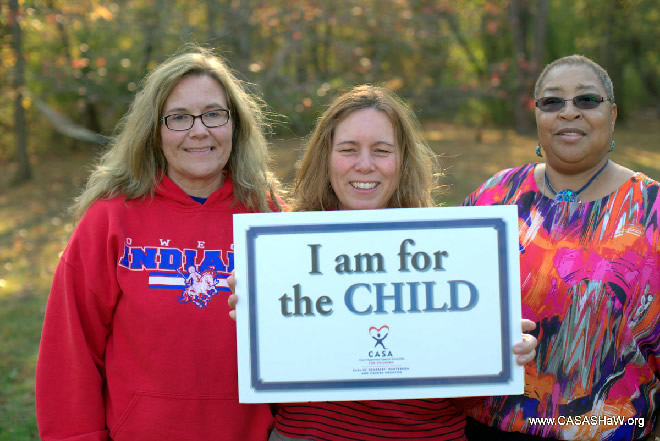GRANTEE SPOTLIGHT is a new feature here at TAAFF.org. Periodically, we’ll be interviewing one of our grant recipients and then introducing you to that organization right here on our website. This is the first in our series. Keep checking back for new Spotlight features!
Tracey Heisler, Executive Director
CASA SHaW
We are so proud to support CASA SHaW (Court Appointed Special Advocates of Somerset, Hunterdon, and Warren counties). CASA SHaW has been working with the Foundation for several years, and was awarded a current grant to fund volunteer training. Since April is Child Abuse Awareness Month, this is a perfect time for us to share the important work that they do.
CASA is a national network of offices that train volunteer child advocates and support them as they are assigned by the courts to the cases of abused/neglected children. Child advocates provide consistent support to these children and gather the information needed for the court system to make good decisions about their living situations. They play crucial roles at turning points in many children’s lives, giving kids a lifeline in situations where one is unavailable. Advocates receive no pay for doing this difficult job, and as such, it’s no wonder that CASA programs make tremendous efforts to effectively support volunteers.
CASA SHaW is one such program with an exemplary commitment to both its volunteers and the community of children it serves. This is in large part thanks to the tireless efforts of its Executive Director, Tracey Heisler. Our Consulting Administrator, Molly Harper, sat down with Tracey to learn more about what led her to CASA, why Central New Jersey needs CASA SHaW, and what it really means to be a child advocate.
Molly: Tell me about yourself. What led you to working with CASA SHaW?
Tracey: It all started because of my mom, who grew up in foster care. She had heard about the program in Florida, where we were both living at the time. We did the volunteer training together. So, I was a volunteer advocate for a few years and eventually took a job with the CASA office. When I moved to New Jersey, it was around the same time that new CASA offices were opening up here. As someone with experience working at a long-standing program, I was a good fit to help the new CASA SHaW grow.
In a lot of ways, my work experiences prior to all of that led me here. I have been a juvenile counselor, a therapist for adult offenders at a jail, a domestic violence and rape counselor, a preschool owner, and a foster parent. Those skill sets are all very useful in the context of my current job.
Molly: What sets CASA SHaW apart from other CASA programs?
Tracey: I am very proud of our program. My heart is in the work we do, and we have a particularly supportive workplace environment. We are very program focused and we have really worked hard to develop quality programs for the advocates here. We also try to take a very holistic approach to advocacy: what do children need, but also, what do their parents need to be successful parents?
In terms of our location, we are dealing with a community that doesn’t “look” like a place where child abuse would be prevalent. Somerset and Hunterdon in particular are very wealthy communities, but over 500 children from this area enter the foster care system annually. In addition, this area of New Jersey has recently seen a rise in heroin use which has exacerbated and complicated the problems we face. Over 70% of cases are now substance abuse related.
Molly: With the work cut out for child advocates, can you describe what it’s really like to be a volunteer? What does it entail that potential volunteers might not think about?
Tracey: It’s a lot of work! Potential volunteers are attracted to working with us because they like the idea of helping a child. However, it is a lot more than that. This is the kind of volunteer role that truly requires sacrifice. We often describe volunteers as “the hub of the wheel” in a given case. They talk to everyone involved in a case and gather all of the information needed to present a complete picture to the court managing a child’s case. They must present a report every three months, and must visit with the child they’re advocating for every thirty days. The work can sometimes involve extensive travel time.
Molly: Knowing that, what kind of qualities do you look for in a potential advocate?
Tracey: We look for someone who is both caring and organized; someone who is assertive but diplomatic; someone who has follow-through and will stick with the process and see it through until the end. When we screen volunteers, we ask for a minimum of 18 months of service.
Molly: What’s in it for the advocates?
Tracey: A great sense of value. You are really invaluable to that child’s case, and you are a necessary piece of the right decisions being made on that child’s behalf.
Molly: What kind of work goes into coordinating all of this from behind the scenes?
Tracey: Because we are a small non-profit organization, a lot of my attention is on fundraising. It’s not fun, but I do embrace the need for it. Without it, we can’t do what we do. I personally am very involved in the day-to-day operations of the office, and having been a volunteer, both of those experiences are helpful when I sit down to write grant proposals. For many years, I had pictures on my walls of the kids I had advocated for. That is a big motivator for me.
Molly: Tell me a little about some of the new initiatives you’ve been working on.
Tracey: One initiative underway is our Peer Coordinator program. CASA offices usually have several case managers on staff who manage groups of volunteer advocates and support them directly. However, we are not always able to afford the desirable number of case managers on staff due to funding issues. With the Peer Coordinator program, we train our more experienced volunteers in many of the aspects of case management so that they can help us to manage more cases and thus take on more volunteers! This past fall we assigned our first cases to our Peer Coordinators. We currently have three working with us.
We have also just received funding for our Traveling Tutor initiative. This will enable us to support experienced volunteers as they travel to some of our children who are in situations where academic support is needed but they are unable to get it (due to a lack of transportation, for example). These academic advocates will work with students on their academic needs and are assigned in addition to a primary advocate.
Molly: What are you doing now that the community should know about?
Tracey: Our annual CASABlanca Casino Night fundraiser will be held on Friday, April 24 at the Basking Ridge Country Club. We have already received a lot of generous support and are excited for the event. It is a lot of fun every year!
This is Child Abuse Prevention Month, so we have been working to spread the word about what this means in our community. In addition to raising awareness on social media (through the #goblue initiative) I was recently interviewed for Comcast NewsMakers and some of the local radio stations about our work. It is important that the community understands that local kids need their help in preventing child abuse right here at home.
And next month – May – is Foster Care Awareness Month. We will be continuing to spread the word about our kids in foster care as well as starting a LinkedIn campaign.
Molly: What message would you share with the community or with potential volunteers?
Tracey: These are our children. They live in our neighborhoods, they go to our schools, and they are friends with our children. While I recognize that it is hard for us to see it, it is important that we acknowledge it. If you are considering volunteering, know that it is a very valuable and meaningful volunteer experience but that it’s not for the fainthearted. It can be draining. But it can also be exhilarating. The best thing we do is continue to reach a hand out and give these children something to hold.







